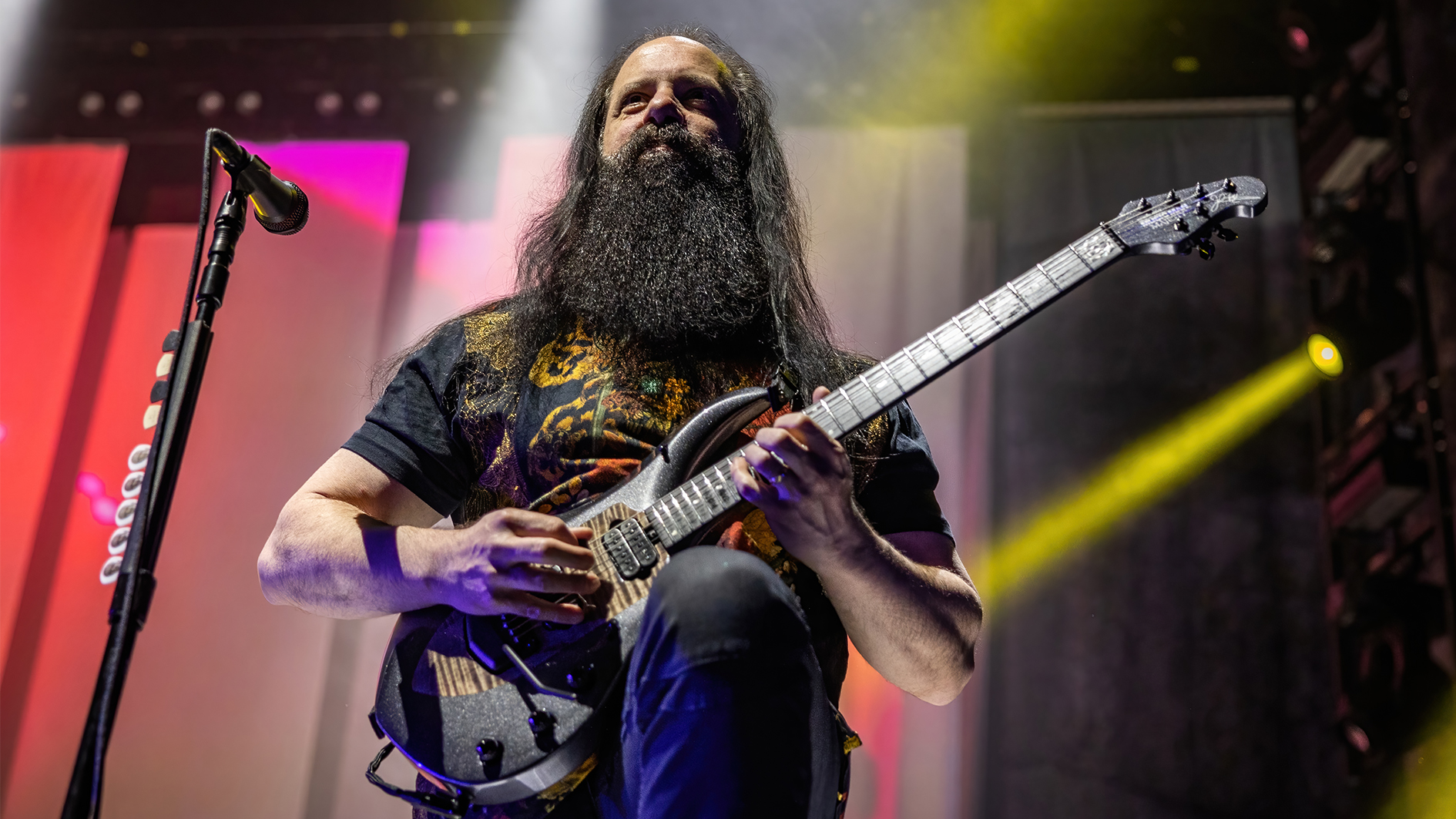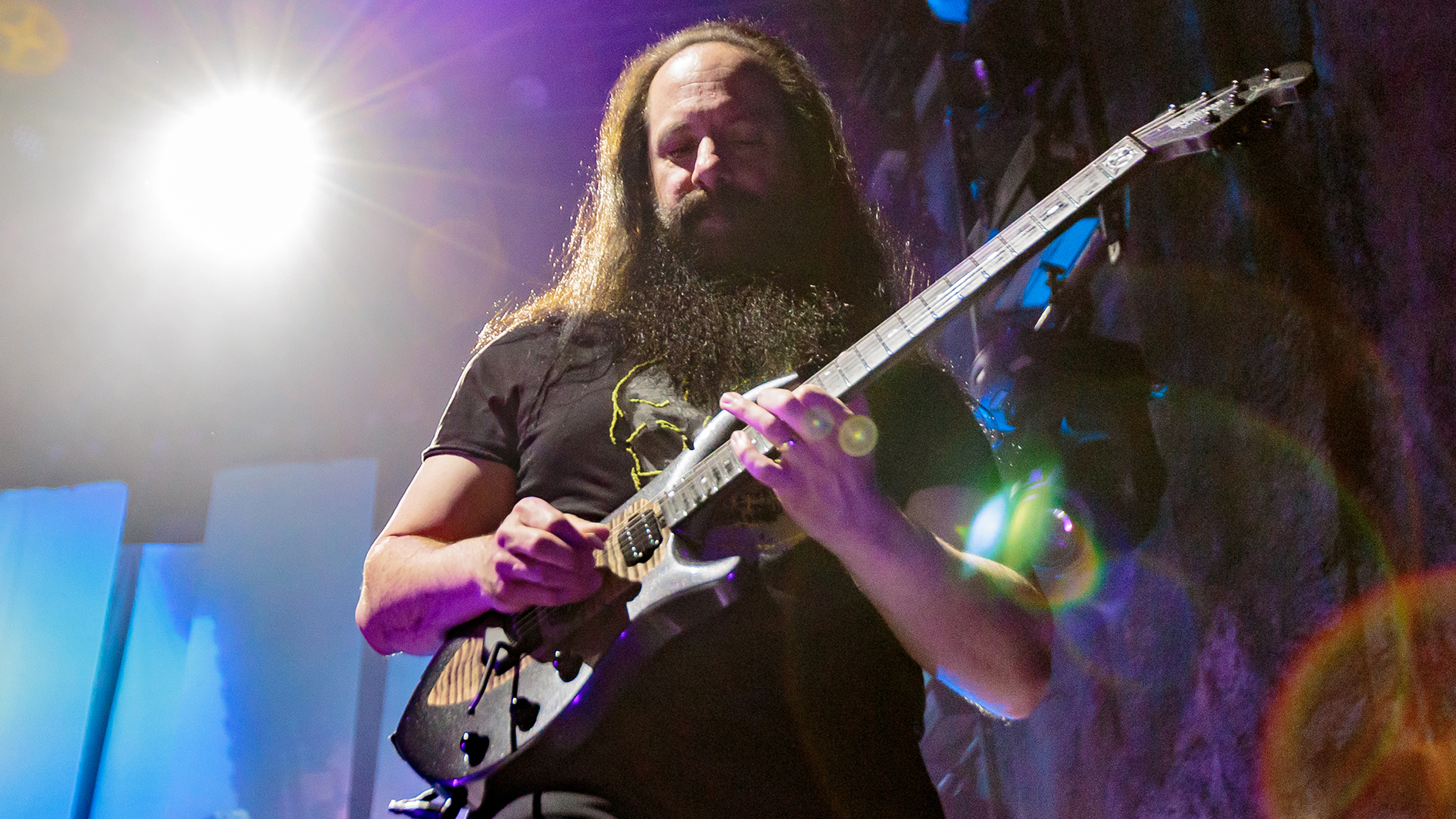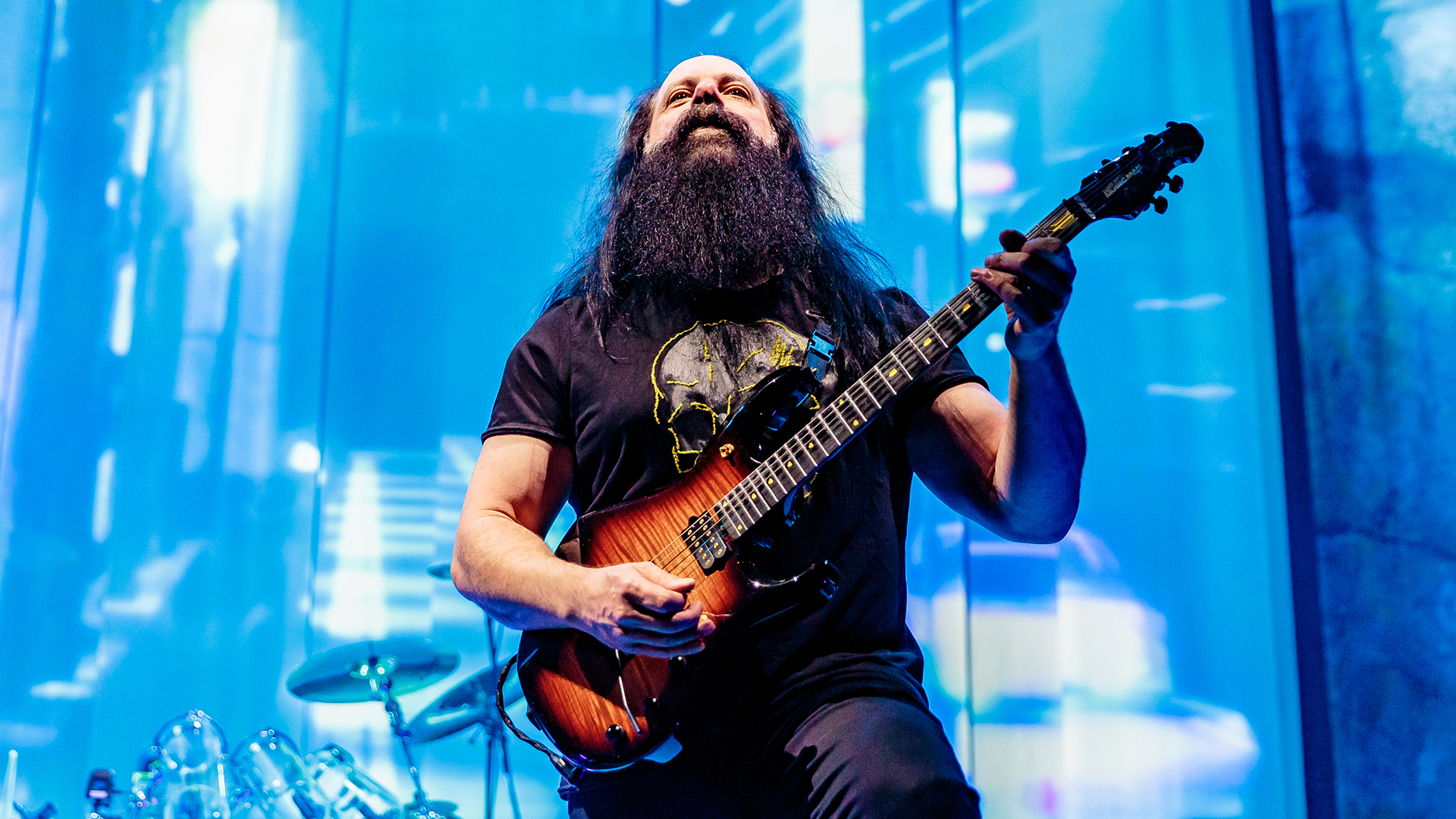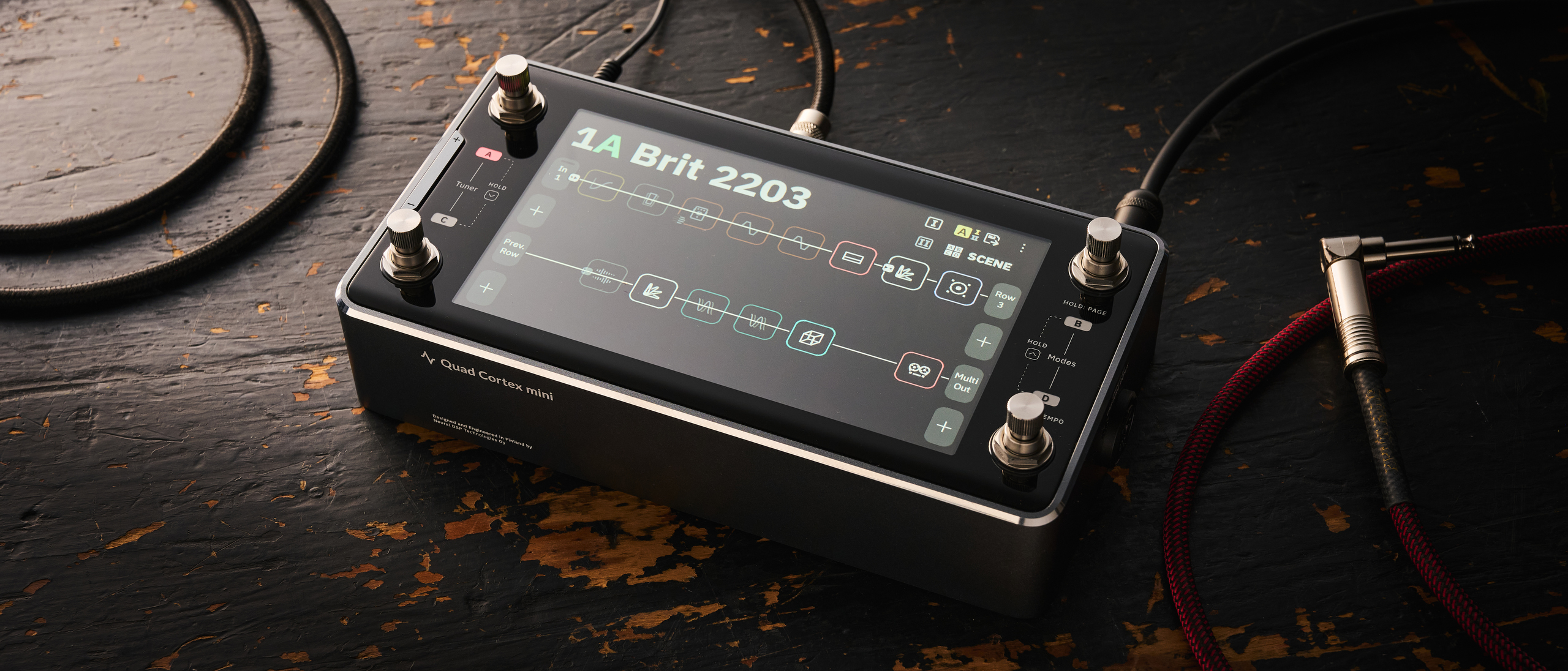John Petrucci: “If a guitarist is onstage playing their ass off, backing tracks don't bother me. But if they're faking it or pretending, that's a whole different thing”
Dream Theater's shredder-in-chief weighs in on the use of pre-recorded elements in live shows, and discusses his first-ever headline solo tour, which sees him sharing the stage with Mike Portnoy for the first time since 2010

All the latest guitar news, interviews, lessons, reviews, deals and more, direct to your inbox!
You are now subscribed
Your newsletter sign-up was successful
There are few guitarists within the dual realms of prog and metal who cast a greater shadow than John Petrucci.
Petrucci first shuttered into our collective consciousness in the late '80s with the mythological prog-metal act Dream Theater. And while Dream Theater took the world by storm with their unique blend of uber-instrumentalism meets deep-dive lyrics, for Petrucci, the road was a bit more complicated.
Coming up during the infamous “shred era”, Petrucci was forced to hold serve with the likes of Steve Vai, Greg Howe, Marty Friedman, Joe Satriani, and more. And while Petrucci ultimately would rise head and shoulders above many of his contemporaries, his first solo effort, Suspended Animation, didn't hit shelves until 2005, during a respite from Dream Theater.
Untethered from the formal band setting, Petrucci brought his talents to the foreground, dazzling unsuspecting listeners through waves of sublime instrumental guitar grandiosity. Awakening as Suspended Animation was for Petrucci and his supporters, ever devoted, for the next 15 years, Petrucci centered most of his attention on Dream Theater.
Of course, the Covid pandemic had its challenges, but the numerous records recorded during the downtime were among the bright spots. Ever curious, always writing, and continuously exploring the deepest of musical caverns, Petrucci reunited with some old friends, namely former Dream Theater bandmate Mike Portnoy and bassist Dave LaRue to record Terminal Velocity (2020).
Still, in the wake of Terminal Velocity's fanfare, Petrucci set his goals aside, making another Dream Theater record, touring the world, and taking in his first GRAMMY. But with those obligations in his rearview mirror, for now at least, for the first time in history, John Petrucci is hitting the road in support of his music.
During a break from the road, Petrucci dialed in via phone to run through sharing the stage with Mike Portnoy for the first time since 2010, the genesis of their musical reconnection, the freedom his solo music provides, and what he loves most about coming home.
All the latest guitar news, interviews, lessons, reviews, deals and more, direct to your inbox!
This tour sees you sharing the stage with Mike Portnoy for the first time since 2010. What sort of emotions course through you as you hit the stage?
“It's great to be playing with Mike again; it really is. The chemistry between us is so natural, probably because we've known each other since we were 18. And as you know, we played together forever, so even with the passing of time, in some ways, it feels like no time has passed at all.
“It's funny because I've often said that this whole tour feels like I'm jamming in the basement with my friends, like when we were little. [Laughs]. So, it's a great feeling to reconnect musically with Mike and to do this together; it's been awesome.”
How did the conversation to reconnect again with Mike for Terminal Velocity begin?
“Well, when I went in to write my second solo album, which turned out to be Terminal Velocity, I thought about Mike. I knew I wanted him to play on it and asked him, ‘Would you be open to playing? Are you free?’ And thankfully, he was around; actually, everybody was around because it was at the start of the pandemic, and every band was off tour.
“So, I wrote the record, and then Mike played drums on it, which was phenomenal. And then, shortly after, we did Liquid Tension Experiment 3, which was Mike, Jordan [Rudess, Dream Theater keyboardist], Tony Levin, and me, and we did that in the summer of 2020.
“So, we had that under our belts, and then, when it came time for me to tour and do my first proper headlining solo tour, of course, I immediately thought of Mike and asked him, and he said yes.
We're all very comfortable, and as a trio, we sound great off the bat. Everybody's super professional, very prepared, and playing their asses off. It couldn't be better
“It's been a developing thing, and it's been great. We're having so much fun out here, and we're touring with our wives, which is something we've never done before. The shows have been phenomenal. The audience loves them, so it's been this relaxed family reunion vibe.”
Can you dig deeper into the chemistry that not just you and Mike share but this touring unit in general?
“This group of people on stage with me each night is awesome, man. With Dave LaRue, I used to go see him play with Steve Morse and the Dixie Dregs, and I remember watching him and thinking, ‘Wow. I really would love to play with that guy. He's phenomenal.’
“So, since I got asked to do G3 back in 2001, I've toured with Dave, and Dave has done every G3 tour, all my Guitar Universe camps, and he played bass on both my solo albums. So, he and I have great musical chemistry that fits like a glove.
“And with Mike, like I said, we have that long history of meeting at Berkeley and being in Dream Theater together for 25 years, so when the three of us get together, it's awesome. And what's even cooler, Dave plays with Mike on another project called Flying Colors, so we're all very comfortable, and as a trio, we sound great off the bat. Everybody's super professional, very prepared, and playing their asses off. It couldn't be better.”

How did you go about putting together a setlist for this tour?
“This has been interesting because I've never toured in support of either of my solo albums. So, when I decided to do a headlining solo tour, I wanted to make the focus be about those two records for the most part.
So, fans can expect songs from both Suspended Animation and Terminal Velocity, and we have a bunch of moments during the show where we improvise, and the song will go off in these different directions.
“I like to do that, and I know the other guys really enjoy that sort of thing too. We do it to give us a chance to break from the album song structure and for me to have the means to feature the other guys. It's important that we feature Mike and Dave soloing and stuff, so it's high-energy type of stuff and really cool to see.”
When it comes to instrumental guitar music, having the guitar be the primary voice for the whole record, or the whole night, that's something that I'm only able to do in this setting
What does your solo music allow you to do creatively that Dream Theater does not?
“I mean, it's a different setting, and the context is different too. When I'm in the studio, I layer guitars and stuff like that, but it's a trio setting, so in some ways, it's more freeing because the guitar is doing everything. But it's more challenging in other ways because the guitar is doing everything. [Laughs].
“But I'm able to explore some other styles that might not be appropriate in Dream Theater, whether that's jazz, blues, other types of rock, or whatever. Because ultimately, Dream Theater is a prog band, and we kind of do everything in a way that nothing's off the table, and of course, there's a ton of freedom in that.
“But when it comes to instrumental guitar music, having the guitar be the primary voice for the whole record, or the whole night, that's something that I'm only able to do in this setting. Whereas in Dream Theater, there are vocals and keyboards, and it's a whole different sort of thing. And while the guitar has its featured moments in Dream Theater, of course, I feature a lot more in a solo sense, for sure.”
Given your reputation for proficiency on your instrument, what are your thoughts on your contemporaries using backing tracks in the live setting?
“It depends on what people are doing because some people don't tour with their whole bands, so they have sound effects and things going on. If they're up there playing their asses off, and they have some sound effects backing that up while they're doing it, that doesn't really bother me.
“Having said that, I think that if anybody's up there faking it or pretending, that's a whole different thing.
“But I think things have changed a lot; you'll have a lot of bands that just go out with two guys now, maybe it's just a guitar player and a drummer, so they need a pre-recorded bass player. If that's the case, then I guess they have to do what they have to do to keep the show going. So, while I am not for people fake playing, it really depends on the situation.”
It's always going to sound like me – I can't escape that – but I can take my sound and morph it into different styles
Having shared the stage with Mike Portnoy and current Dream Theater drummer Mike Mangini, what are the most significant differences between the two?
“Well, I don't usually think about the differences. If anything, I like to focus on the similarities because there are so many. I've said this before, but I believe that if we all knew each other, we would all have been friends if we had all grown up in the same town.
“I think we all would have been in the same jam sessions that [Dream Theater bassist] John Myung, [former Dream Theater keyboardist] Kevin Moore, and I were having back in Kings Park, Long Island.
“It doesn't matter if it's Portnoy or Mangini; it's a very similar mindset that we all have. We're all fans of the same music, and we all gravitate towards the same stuff and have very similar influences. So, there's this common headspace, and I guess that's what draws you to people, right? You feel like you have that musical connection.”

What's your secret to metal and prog guitar?
“I've always said that the guitar sound can really shape or determine the musical style of a band. I've always said that because I really do believe that it's true. If you think about a guitar sound, it could be a heavy metal thing, and if you apply that to prog, then it's going to come across in that style.
“If you're playing with a traditional kind of sound, like a clean rock style, it might sound more old-school prog. And if you use a more fusion sound, that might become more of a prog-fusion thing. The guitar can help to identify the band's style and how it comes across.
“And obviously, part of that is production, orchestration, and stuff like that, but I think the guitar has always been a super-important element. And having people say, ‘Okay, this is heavy. This is mellow. This is fusion,’ maybe I'm biased, but I feel like it comes from the guitar most often.
“So, I maintain the same approach. I play the way I play, but what changes is the tone, the production, or the techniques I may use depending on the style I want to apply. It's always going to sound like me – I can't escape that – but I can take my sound and morph it into different styles. I know that's not everyone's approach, and maybe it doesn't make sense, but it's what works for me. I think it comes from within, mostly.”
The vibe in New York and on Long Island is just fantastic. I couldn't think of a better way or place to wrap up my first-ever solo tour. And to do it with my friends and family on stage with me, it's a real bit of serendipity
I'm speaking to you from Long Island now, where you're wrapping up this tour in November. Having said that, as a native Long Islander, what do you love most about coming home?
“Being from Long Island, I always have a sense of pride playing there. Of course, as you said, it's the last show of this 36-show tour. It's just in time for Thanksgiving, and we're going to be pumped at the end there. But the funny thing about that venue, in particular, the Patchogue Theatre, is that while both my girls are adults now, when they were kids, their dance recitals were held there.
“And when they would have their recitals, I used to volunteer as security for the venue. So, playing the Patchogue Theater after all those years of watching my girls dance recitals is going to be a real trip.
“And, of course, we have tons of family and friends there, which I am looking forward to seeing, and the vibe in New York and on Long Island is just fantastic. I couldn't think of a better way or place to wrap up my first-ever solo tour. And to do it with my friends and family on stage with me, it's a real bit of serendipity, and I'm thankful for it.”
- Terminal Velocity is out now via Sound Mind Music. For a list of dates on John Petrucci's current US tour, head to his official website.
Andrew Daly is an iced-coffee-addicted, oddball Telecaster-playing, alfredo pasta-loving journalist from Long Island, NY, who, in addition to being a contributing writer for Guitar World, scribes for Bass Player, Guitar Player, Guitarist, and MusicRadar. Andrew has interviewed favorites like Ace Frehley, Johnny Marr, Vito Bratta, Bruce Kulick, Joe Perry, Brad Whitford, Tom Morello, Rich Robinson, and Paul Stanley, while his all-time favorite (rhythm player), Keith Richards, continues to elude him.

